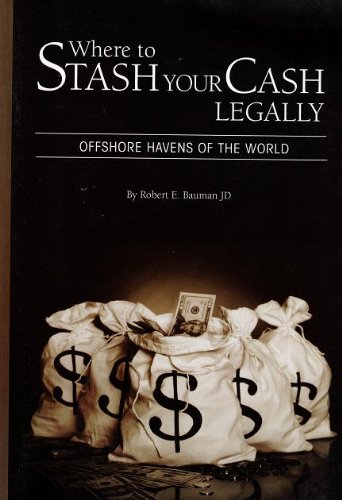Tax competition among nations really does matter – for good or for ill, as I noted in yesterday’s blog entry.
Example: until 1998, citizens of the United Kingdom who lived and worked outside the U.K. for more than a year were exempt from taxes on their earnings if they physically were not in the U.K. longer than 62 days during each year.
Then the unlamented former Labor government, elected in 1997, abolished this “foreign earnings deduction” in what it called “fairness.” After that, a U.K. citizen who earned any amount of U.K. source income, however small, while physically in the U.K. was forced to pay taxes on their entire year’s earnings, regardless of where in the world that income was earned; no more offshore tax exemption.
The results were predictable and swift. In particular, high-earning nonresident U.K. athletes and entertainers were forced to modify their travel schedules to avoid earning even a single shilling of U.K. source income.
Stoned
Case in point: The Rolling Stones canceled the U.K. leg of their 1998 world tour as a direct result of this tax law. Arguably the world’s leading rock and roll band, The Stones would have had to pay over £12 million (US$18.8 million) in taxes on their worldwide incomes if they played the four U.K. scheduled concerts. And the U.K. tax collectors were ready to grab the gate proceeds to pay the taxes.
Labor government spokespersons were quick to respond to the announcement of the Stones cancellation as being driven by their greed. But when the Stones offered to play the concerts and give the earnings to charities in return for a tax exemption, the government turned down the offer.
The bottom line: Great Britain may be a great place to live, but a very bad place to be tax domiciled. Just ask Mick Jagger and his Stones colleagues.
Fast Forward…
…a dozen years and U.K. tax history repeats itself.
Except that after 13 years of Labour’s misrule, the United Kingdom is billions of pounds in the hole and verging on national bankruptcy – and tax rates for upper income persons now exceed 50%.
But as luck would have it, the Ryder Cup Matches, the major golf competition between teams from Europe and the United States, is scheduled to be held in the U.K. on October 1st.
Avoiding Millions in Taxes
One of the regulars on Ryder Team USA has been Tiger Woods, about whom I’ve had some things to say before.
Reports are that Woods is reluctance to accept a Ryder Cup wild card in part because of a potential £1 million (US$1.56 million) U.K. tax bill he could face for playing in the event, which pays no prize money.
Aside from any sporting price his team-mates might suffer because of his recent wretched golfing form, the tax issue highlights a problem that is causing concern for many British sporting events.
Still the world’s number one golfer, Woods is going through an expensive divorce and now, more than ever, probably is being very careful about his finances.
 Where to Stash Your Ca...
Best Price: $16.94
Buy New $19.95
(as of 11:55 UTC - Details)
Where to Stash Your Ca...
Best Price: $16.94
Buy New $19.95
(as of 11:55 UTC - Details)
If Woods stays away from the Ryder Cup it would not be the first athlete stay away because of Britain’s punitive income tax rules. The sprinter Usain Bolt has pulled out of a high-profile race in London this weekend. And prospective members of Europe’s Ryder Cup team whose main residence and tax domicile, like Woods, are in the tax haven State of Florida, could also be hit.
One Way Out
So tax competition does make a difference – a difference in where you live, in what you can do, in how much of your hard-earned income you can keep away from the greedy hands of tax collectors and big spending politicians.
As Sovereign Society members know, the only legal way by which Americans can avoid U.S. taxes is to end U.S. citizenship by expatriation. (You may want to read The Expatriation Report which I authored.)
If you think expatriation could be for you, the first step is to choose a new jurisdiction and apply for citizenship. There are a number of ways one can gain citizenship. You can contact the embassy of your country of choice, and check out my Passport Book, a complete guide to each citizenship option for 90 desirable countries.
But the U.K. income tax situation emphasizes another important point – the vital need to know all about any foreign country you may be considering as your future home.
You must make certain that your chosen country imposes no taxes on foreigners who move there. I explain where these countries are in my best-selling Where to Stash Your Cash Legally.
Reprinted with permission from the Sovereign Society.
Robert E. Bauman is a former Member of the United States House of Representatives from Maryland, (1973–1981). He is also a former federal official and state legislator; Member, Washington, DC Bar; Graduate of the Georgetown University Law Center (1964) and the School of Foreign Service (1959), Washington, DC. Robert currently serves as legal counsel for the Sovereign Society.




